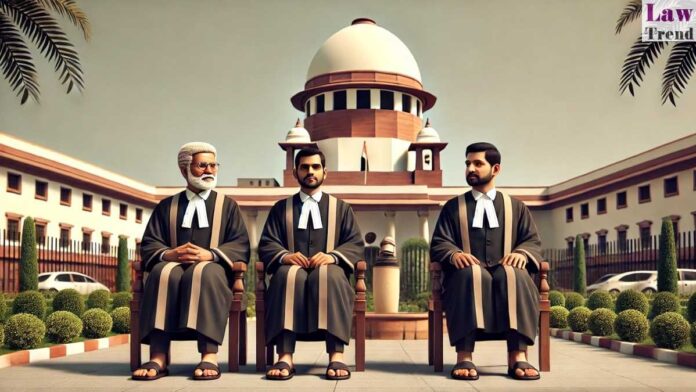In a significant ruling reinforcing the principle of equality before law and the independence of the judiciary, the Supreme Court on Monday held that all retired High Court judges are entitled to full and equal pension, regardless of their source of entry or date of appointment. The Court mandated the application of the “one rank one pension” principle to bring uniformity in post-retirement benefits.
The verdict was delivered by a three-judge bench comprising Chief Justice of India BR Gavai, Justice A.G. Masih, and Justice K. Vinod Chandran. The Court was hearing a suo motu matter concerning judicial retiral benefits along with writ petitions filed by several retired judges.
Uniform Pension Structure Ordered
The Court laid down a clear and uniform pension structure:
- Retired Chief Justices of High Courts will be entitled to an annual pension of ₹15 lakh.
- Retired High Court Judges — including those who served as Additional Judges — shall receive ₹13.5 lakh annually.
- The “one rank one pension” principle must be applied uniformly, irrespective of whether a judge entered from the Bar or the judicial service, or the duration of service in either category.
- For judges who transitioned from the district judiciary to the High Court, any break in service between the two tenures shall not affect their entitlement to full pension.
- Judges who joined the district judiciary under the New Pension Scheme (NPS) and were later elevated to the High Court will also receive full pension, and the entire NPS contribution along with dividend is to be refunded by the concerned States.
- Family pensions are to be granted to the legal heirs of High Court judges who died in harness, regardless of whether they were permanent or additional judges.
“Once a Judge, Always Equal”
While pronouncing the judgment, Chief Justice Gavai highlighted the constitutional implications of disparity in pension:
“The dignity of the constitutional office demands that all judges be paid the same pension. Once a judge enters constitutional office, the source of entry loses relevance.”
He noted that Article 221 and the High Court Judges (Salaries and Conditions of Service) Act, 1954, were examined to reach this conclusion. Emphasizing the importance of equal treatment, the Court observed:
“Where equal treatment is given during service, any discrimination after retirement in terminal benefits would offend Article 14 of the Constitution.”
The bench further rejected the notion that discontinuity in service — often experienced by judicial officers transitioning from subordinate judiciary to High Court — could justify reduced pension. It declared:
“Pension cannot be reduced on the ground of a break in service between retirement as a District Judge and appointment as a High Court judge.”




